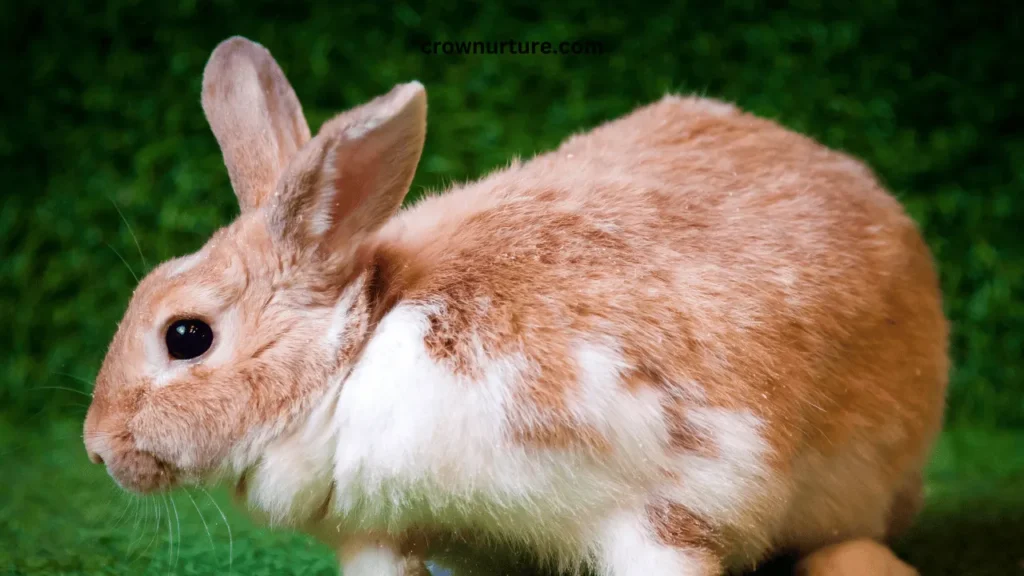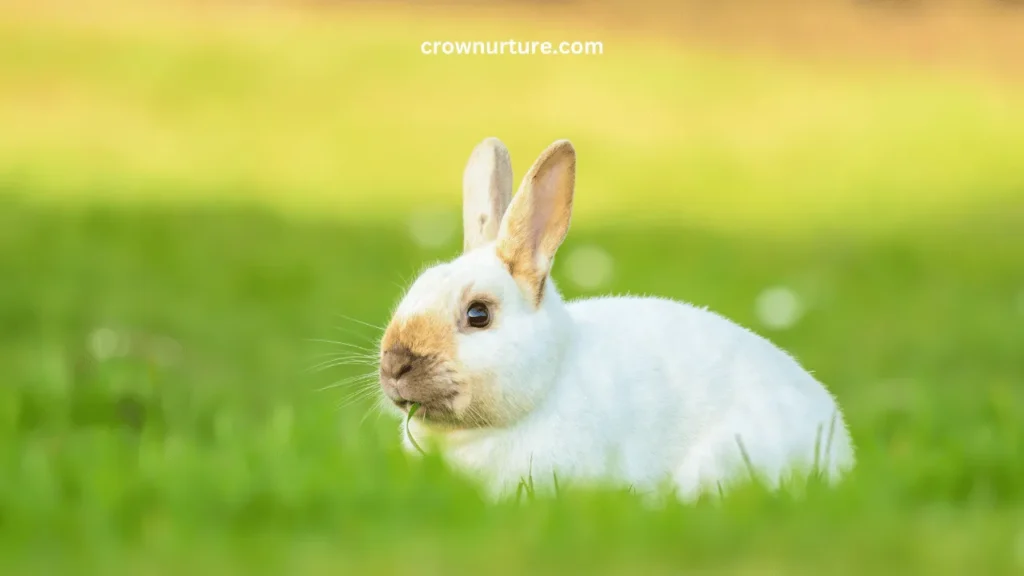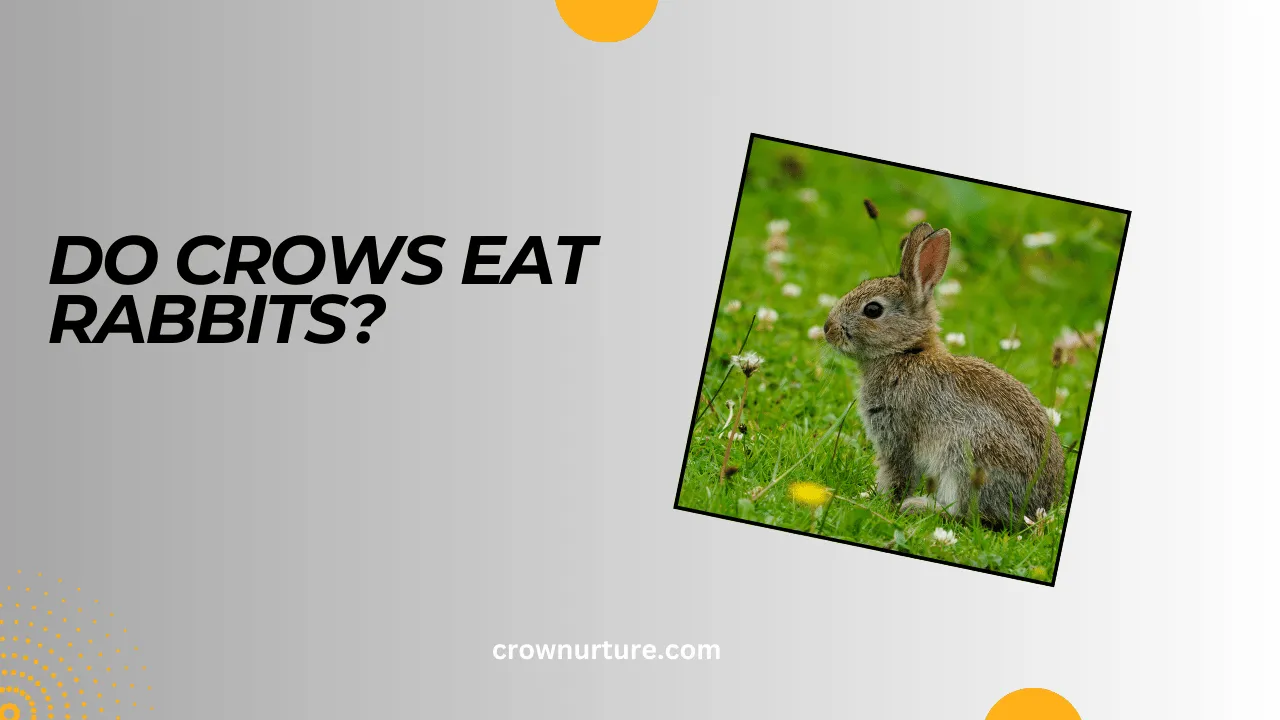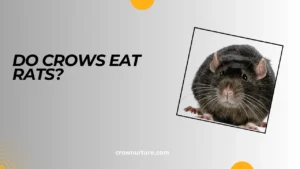Crows are among the most intelligent birds on the planet, known for their adaptability and varied diet. As opportunistic feeders, they have developed the ability to survive in diverse environments by eating whatever is available.
But when it comes to small mammals like rabbits, does their resourcefulness extend to preying on these creatures? The relationship between crows and rabbits isn’t as straightforward as it may seem.
While crows primarily feed on insects, fruits, seeds, and carrion, their opportunistic nature sometimes leads them to target vulnerable animals, such as young or injured rabbits. This raises important questions about how crows fit into the delicate balance of predator-prey dynamics in ecosystems.
Understanding the dietary habits of crows and their interactions with rabbits offers insights into the complex web of nature. In this article, we’ll uncover the truth about whether crows eat rabbits, explore the factors influencing this behavior, and discuss how human activities impact these interactions.

Contents
1. Crow Diet and Foraging Behavior
- Omnivorous Nature: Crows are highly adaptable omnivores, consuming everything from insects and fruits to carrion and small animals. This varied diet helps them thrive in both rural and urban environments.
- Opportunistic Feeding: Their feeding habits are opportunistic, meaning they take advantage of whatever food sources are available, depending on the season and habitat.
- Food Preferences: Crows prefer food items that are nutritionally dense and easy to obtain, such as seeds, berries, and small invertebrates, but they may occasionally eat small vertebrates if other options are scarce.
2. Rabbit Vulnerability
- Size Disparity: Adult rabbits are generally too large and strong for crows to overpower, making them unlikely targets. Crows tend to focus on smaller, more vulnerable animals.
- Defense Mechanisms: Rabbits have evolved effective defenses, such as speed, agility, and camouflage, to avoid predators, including birds like crows.
- Nestling Vulnerability: Young rabbits, particularly those in nests, are at greater risk. Crows may prey on them if they are exposed or unprotected, especially in open habitats.

3. Factors Influencing Predation
- Food Availability: When natural food sources like insects or fruits are scarce, crows may resort to hunting small animals, including baby rabbits, to meet their nutritional needs.
- Habitat Quality: The availability of dense vegetation and safe nesting sites can protect rabbits from predators. In contrast, open or degraded habitats make them more vulnerable.
- Population Dynamics: Fluctuations in crow and rabbit populations influence interactions; high crow densities can increase predation pressure on vulnerable rabbit populations.
4. Evidence and Anecdotal Reports
- Scientific Studies: While scientific data on crows preying on rabbits is limited, studies suggest they occasionally target small mammals under specific conditions.
- Birdwatcher Observations: Bird enthusiasts have reported crows scavenging rabbit carcasses or preying on young rabbits, but these behaviors are relatively rare.
- Anecdotal Evidence: Farmers and wildlife observers occasionally share stories of crows attacking rabbit nests, highlighting their opportunistic tendencies.
5. The Role of Human Intervention
- Habitat Modification: Urbanization and agriculture can alter natural habitats, forcing both crows and rabbits to adapt. Deforested or fragmented landscapes may increase interactions between the two species.
- Feeding Practices: Human-provided food sources, such as garbage or bird feeders, can attract crows and potentially disrupt natural predator-prey dynamics.
- Conservation Efforts: Promoting balanced ecosystems and protecting natural habitats help maintain the delicate relationships between species like crows and rabbits.
Conclusion
Crows are versatile and opportunistic feeders, capable of adapting their diet to include a variety of food sources. While they primarily eat insects, seeds, fruits, and carrion, they may occasionally prey on vulnerable small animals, such as baby rabbits.
However, predation on rabbits is relatively rare and usually occurs under specific conditions, such as food scarcity or exposed nests. Understanding the ecological roles of both crows and rabbits sheds light on the complexities of nature.
These interactions highlight the importance of habitat preservation and responsible human intervention to maintain balance in ecosystems. By appreciating the behaviors of crows and their occasional role as predators, we gain a deeper respect for the intricate web of life around us.
FAQs
1. Do crows eat rabbits?
Yes, crows may occasionally eat baby or injured rabbits, but this is not a common part of their diet.
2. Can crows kill adult rabbits?
It is highly unlikely. Adult rabbits are typically too large and fast for crows to overpower.
3. Why would a crow eat a rabbit?
Crows might eat a rabbit if it is a baby, injured, or already dead. They are opportunistic feeders and scavengers.
4. Are crows a significant threat to rabbit populations?
No, crows are not a significant threat. Their predation on rabbits is rare and usually involves young or weak individuals.
5. Do crows hunt in groups?
Sometimes. Crows may work together to scavenge or hunt, but group hunting for live prey like rabbits is uncommon.
6. How can I protect baby rabbits from crows?
Ensure rabbit nests are well-hidden and provide dense vegetation or protective barriers to deter predators.








